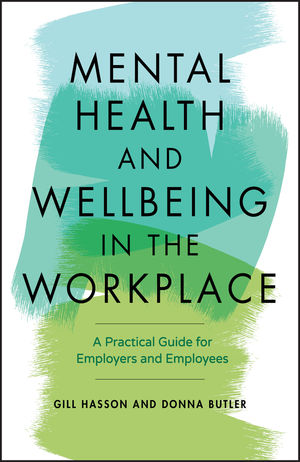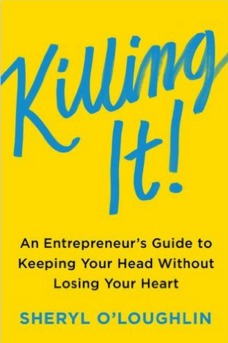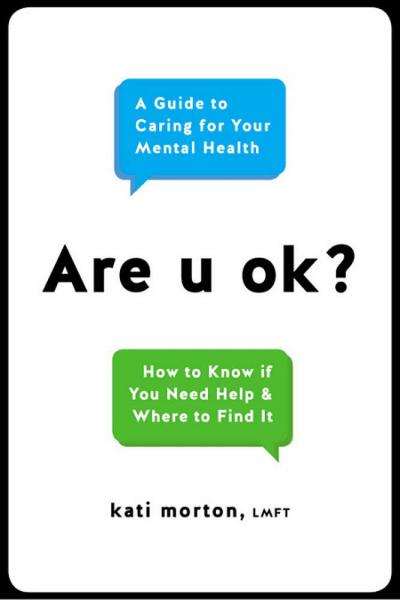
This two-part mental health blog post series outlines strategies for beating burnout and investing in well-being at work. In this article, we share opinion pieces that address the psychological price of entrepreneurship and books that highlight the importance of accessing support early. In part two, you will find health sources and testimonials that will further explore this topic.
As COVID-19 continues to impact small businesses across Canada, many entrepreneurs have been directly affected by changes to their business model. The shift to remote working means that the lines between work and home are blurred and small business owners are expected to juggle many competing demands. It is increasingly important that entrepreneurs understand the negative impacts of job burnout and implement routines to prioritize mental health.
Opinion Pieces
1. Valcour, M. (2016, November). Beating burnout. Harvard Business Review. https://hbr.org/2016/11/beating-burnout
Summary: Burnout can have negative physical impacts, including hypertension, depression, and coronary artery disease. It has three main components: exhaustion, cynicism, and inefficacy. So how do we prevent this? Valcour suggests prioritizing self-care (this includes healthy sleeps, good nutrition, social connection, and exercise). However, self-care alone won’t eradicate the root causes of burnout. It is important to shift your perspective and reduce stressors at work, as well as nurture positive professional relationships.
2. Bruder, J. (2014). The psychological price of entrepreneurship. Inc. https://www.inc.com/magazine/201309/jessica-bruder/psychological-price-of-entrepreneurship.html
Summary: The “fake it ‘till you make it” mentality of entrepreneur culture has long prohibited founders from talking about their mental health struggles. However, this is changing. The tragic deaths of Jody Sherman and Ilya Zhitomirskiy are testaments to the need for honest conversations about mental health in the start-up community. Contributing factors to poor mental health in entrepreneurship include an inherent high risk of failure, constant setbacks, and the need to juggle many roles. Innate character traits may also play a role. Prevention suggestions include making time for loved ones, limiting financial risk, exercising, and being open about your mental health.
3. Leiber, N. (2020, December 8). Concerns rise about business owners’ mental health. Bloomberg. https://www.bloomberg.com/news/articles/2020-12-08/small-business-mental-health-advice-for-small-business-owners
Summary: COVID-19 has contributed to a significant rise in mental health issues for small business owners. Entrepreneurs feel overwhelmed and isolated. Female and/or BIPOC business owners are at a particularly high risk, especially in sectors hit hardest by the pandemic. According to a study published by Women’s Entrepreneurship Knowledge Hub, “Indigenous women entrepreneurs were more likely to experience a “very negative” impact on their businesses from COVID-19 and experience a drop in revenue of more than 50%.” More research is needed on the mental health of small business owners as the stressors they face are unique. Organizations such as Econa, which provides an online space to talk about mental health for small business owners, are an important step.
Books

1. Hasson, G. & Butler, D. (2020). Mental health and wellbeing in the workplace: a practical guide for employers and employees. Wiley.
Summary: This e-book offers expert advice for employers and staff on promoting positive mental health at work. By addressing the range of issues surrounding mental health and well-being in the workplace, the authors highlight the importance of shifting our attitude and approach toward mental health. The importance of a “wellbeing strategy” is discussed as one way to address stress and anxiety in the workplace and provide guidance for individuals experiencing mental health issues.
 2. O’Loughlin, S. (2016). Killing it: An entrepreneur’s guide to keeping your head without losing your heart. HarperCollins Publishers.
2. O’Loughlin, S. (2016). Killing it: An entrepreneur’s guide to keeping your head without losing your heart. HarperCollins Publishers.
Summary: This book discusses the personal cost to devoting one’s life to launching a business, including divorce, addiction and suicide. The author, a former CEO, co-founder and serial entrepreneur, shares actionable strategies for investing in our most important asset: well-being. By addressing common questions ranging from launching a business to finding joy in the day-to-day, Killing It provides entrepreneurs with the tools that they need to build a successful business while prioritizing personal well-being.

3. Morton, K. (2018). Are u ok? A guide to caring for your mental health. Da Capo Lifelong Books.
Summary: This book discusses common mental health questions and offers practical strategies for accessing support. Drawing on the author’s experience as a licensed marriage and family therapist and YouTube personality, readers are encouraged to understand the red flags of a mental health issue and talk openly with family and friends. Written in a warm, down-to-earth and friendly tone, the book reminds readers that they are not alone in their struggles and that support and help is available.
Mental Health Support Resources:
- Anxiety Canada Free PDF Resources: Provides in-depth information about anxiety disorders, as well as links to wellness plans and ways to find help.
- BounceBack: A free online skill-building program designed to support adults and youth over 15 years of age manage low mood, mild to moderate depression, anxiety, stress or worry.
- Crisis Centre: Providing barrier-free, confidential support through 24/7 phone lines and online services.
- HealthLink BC: Mental and Behavioral Health: A Government of BC resource with in-depth information about a wide variety of mental health issues.
- HealthLink BC: Resources: A Government of BC resource with a list of mental wellness services, aimed at helping people find the help they need.
- Wellness Together Canada: A free Government of Canada resource that helps connect those seeking mental health support to services and/or counselling.
Phone Numbers for Immediate Support:
- 310Mental Health Support (310-6789): No area code needed. For information, emotional support, and mental health resources. Available 24/7.
- 1-800-SUICIDE (1-800-784-2433): Use this number if you are considering suicide, or are concerned about someone who may be. Available 24/7 in up to 140 different languages.
- KUU-US Crisis Response Service (1-800-588-8717): An Indigneous-specific crisis line, available 24/7. All personnel are certified in Indigenous cultural safety and bring this knowledge to their roles.
- Hope for Wellness Help Line (1-855-242-3310): A Canada-wide help line with a culturally-competent Indigenous focus. Services are also available in Cree, Ojibway, and Inuktitut upon request.
Text Lines for Immediate Support:
- Text ‘WELLNESS’ to 741741: A Wellness Together Canada crisis response resource line.
- Send a text to 45645: A Crisis Services Canada text line, available from 4PM to 12AM ET.



